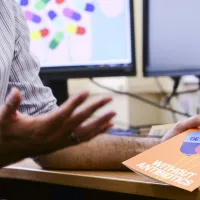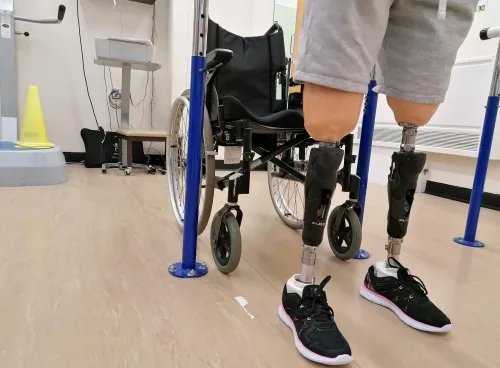Living with IBS
IBS is a common and often debilitating condition that has no cure, affects quality of life and incurs high health care costs in both primary and secondary care.
The key symptom is abdominal pain or discomfort linked to changes in bowel habit and commonly bloating. Psychological factors such as stress can trigger or worsen symptoms.
Although CBT is recommended in NICE guidelines for IBS, for patients with ongoing symptoms for more than a year, there is very limited access.
NICE guidelines also recommend GPs consider prescribing low dose amitriptyline for IBS when initial interventions such as dietary and lifestyle change have been ineffective. However, previously there was insufficient evidence about its effectiveness and GPs rarely prescribed it.
Impacts of the research
Hazel, who is internationally recognised for her IBS research, has led two studies into CBT in IBS at Southampton and was Co-Chief Investigator on the ATLANTIS project, a trial of low dose amitriptyline for IBS in primary care with colleagues at the Universities of Leeds and Bristol.
The first IBS study, Managing IBS in primary care (MIBS), developed a CBT for IBS self-management website called Regul8. The second study, Accessing Cognitive Behavioural Therapy in IBS (ACTIB), was the largest trial of CBT for IBS worldwide.
The ACTIB trial showed that telephone and online CBT for IBS led to significant clinical improvements in symptoms at 12 months that were sustained at 24 months. The telephone CBT for IBS self-management programme is now available across the country through the NHS Improving Access to Psychological Therapy (IAPT) service.
Regul8 has been developed into an app by Mahana Therapeutics in the USA and been approved by the Food and Drug Administration (FDA).
The ATLANTIS trial found that low doses of the amitriptyline were effective at reducing IBS symptoms at 6 months and recommended GPs offer it to patients with ongoing IBS symptoms. The results have been published in The Lancet, won prizes at conferences and are being disseminated globally.
The next steps
The research has the potential to have further impact worldwide. Currently investigations are being carried out to expand the IBS CBT digital therapeutics into new markets and team is hoping that the results from their ATLANTIS study will lead to more patients being offered amitriptyline as a second-line treatment in primary care.





